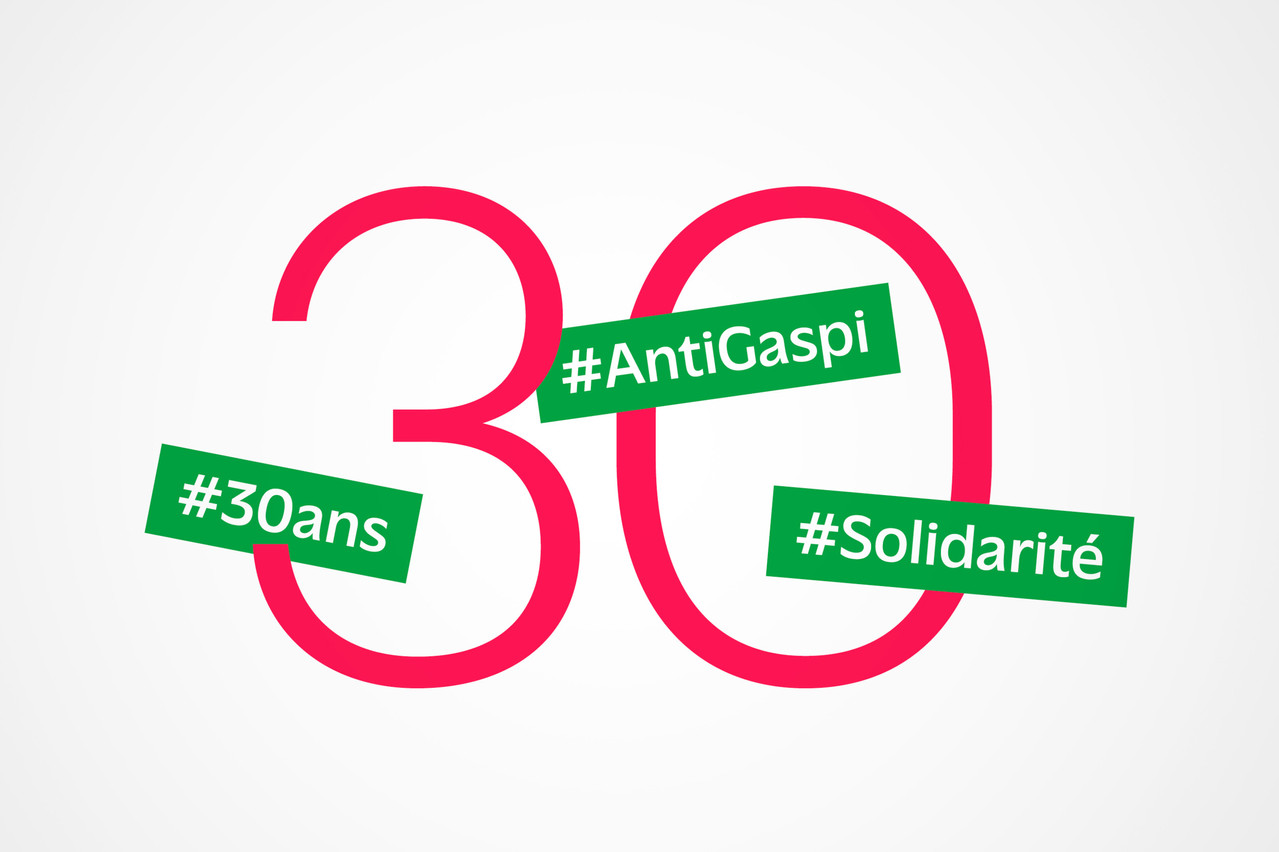Maison Moderne and SOS Faim not only share their birth year, but also their desire to fight against food waste.
So, on the occasion of its 30th anniversary in 2023, the publisher of Paperjam and Delano is launching an anti-waste campaign with the non-profit. “The Paperjam + Delano Business Club invites the 30% of people who make up the ‘no-show’ at its events to make a transfer of €30 or more to SOS Faim,” writes Maison Moderne on its poster. At the end of the poster is a QR code that can be scanned to make a donation.
“We have talked to other professional event organisers and the observation is the same everywhere: the no-show rate has increased since the end of covid,” explains , director of the Paperjam + Delano Business Club. “We understand that everyone can have a last-minute impediment, but these figures are too high. As our events are often ‘sold out’, this also prevents other members from attending, and this contributes to food waste.”
, CEO of Maison Moderne, added: “To raise awareness among our members and their guests, we decided to partner with the SOS Faim organisation, which, like Maison Moderne, celebrates its 30th anniversary in 2023, to launch a campaign with a dual objective. To raise awareness of the effects of ‘no-show’ and to appeal for donations to SOS Faim.”
25 partners in Africa for sustainable agriculture
“Thanks to Maison Moderne and Mike Koedinger for launching this campaign,” says Thierry Defense, director of SOS Faim. He hopes that it will “raise awareness of our cause among other people.”
The funds raised by the NGO are used to “help our partners in Africa who are working for sustainable development and respectful agriculture,” explains the director. The non-profit has 25 partners in seven countries (Benin, Burkina Faso, Ethiopia, Mali, Niger, DRC, Senegal). These partners are both “farmers’ unions” and “microfinance institutions adapted to farmers.”
“Our action is based on the principle that the scourge of hunger is not inevitable. It is possible to feed everyone while respecting nature. The problem is that the food produced is unfairly distributed.” He questions a “productivist model that exploits people and nature, and creates incredible inequalities.”
In Luxembourg, the association also carries out awareness-raising actions, listed on its website, which “invites people to change their eating habits. I think that consumers here have a responsibility.”
